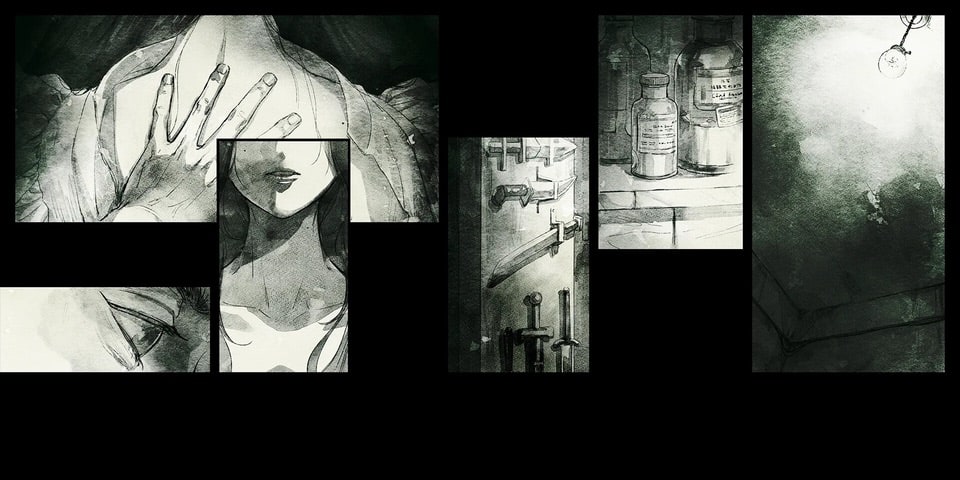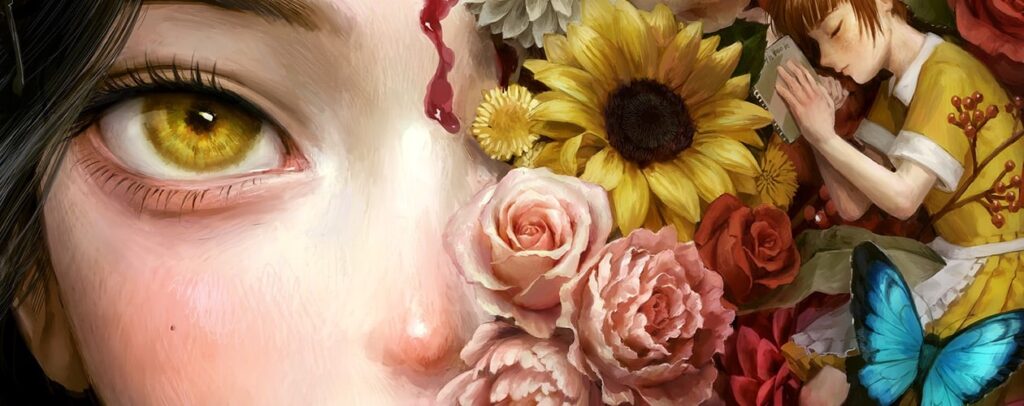For the longest time, I’ve associated Japanese developer MAGES with absolute anime nerd (weab) slop. Now, as a massive weab, I say that in the most endearing and well-meaning way. The dense sci-fi visual novel adventures of Steins;Gate and the schlocky, shocking horror of Corpse Party are some of my favorite games, but in the last year, I’ve come to appreciate MAGES for a series of games that their work on has seemed to be relatively unnoticed. The recent Famicom Detective Club remakes on Nintendo Switch were developed in part by MAGES, including the incredible new entry Emio – The Smiling Man. Delivering an incredibly mature, slow, ominous, and grounded visual novel detective mystery, it ended up as one of my favourite games of 2024. It’s no wonder I ended up loving Iwakura Aria, as it shares so much of that same DNA and style.
Iwakura Aria wastes no time delivering a drab and dour opening. In 1966, in the wake of the war, Japan is full of orphaned children with no reliable path forward. One such child is our protagonist, Ichiko Kitagawa, who clings to hope as she scrapes by and spends her time illustrating. One day, though, her art catches the eye of a mysterious man, who ends up being the head of the prestigious Iwakura household. Almost on sight, he invites her to join the household as a maid, giving her a home and a path forward, but for seemingly no clear reason or benefit to himself. The dominoes of uncertainty slowly tumble onward from there, as Ichiko gets familiar with the mansion, picks up on the secrets bubbling within it, and begins to bond with Aria, the heiress of the family.
The events of Iwakura Aria don’t immediately have a hostile or ominous air to them, but what makes that sense of dread creep through is the incredible aesthetic of the game. Every character is rendered in a gorgeous, detailed, painterly style that is reminiscent of The House of Fata Morgana. The backgrounds, though, are a bit sharper, a bit more realistic, and swathed with incredibly realistic shadows and lighting. The result is an unsettling tonal clash that kept me with a cold-sweat the entire time I was playing.
In an early scene, Ichiko uncovers a dark and dimly lit room that contains a wardrobe full of knives, hammers, and guns. The way household-head Amane Iwakura’s bright character art contrasts against the dark, foreboding room as he gaslights our protagonist into not worrying about the content of the wardrobe is incredible and sinister.

As the game progresses, Ichiko falls deeper and deeper into the hellish secrets of the Iwakura household. What I appreciated most about this game is that uncovering those secrets and seeing Ichiko’s story through to it’s bitter end doesn’t take long at all. The adventure wraps up in a dozen or so hours, which is light and brief compared to the gargantuan 40-80 hour runtimes of most other mystery VNs, including MAGES own Steins;Gate series. The brief runtime helps paper over some of Iwakura Aria’s weaker points, too – investigation gameplay is here, but often feels more arbitrary or forced than it does engaging or enticing. There’s also a surprising lack of expression variations for character sprites or unique illustrated CGs.
Still, those qualms are minor in the grand scheme of things. Iwakura Aria is an incredibly insightful, grim, and engaging visual novel that doesn’t overstay it’s welcome. The combination of dark subject matter and beautiful character art creates one of the most interesting visual novel experiences I’ve ever played, and is well worth checking out for anyone interested in a more grounded mystery VN experience.


